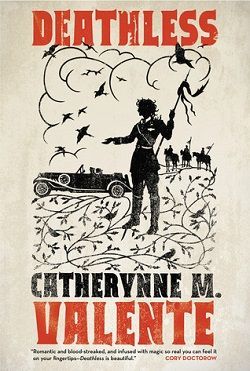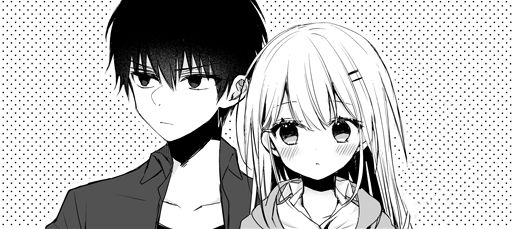Summary

Deathless
by Catherynne M. Valente
Koschei the Deathless is to Russian folklore what devils or wicked witches are to European culture: a menacing, evil figure; the villain of countless stories which have been passed on through story and text for generations. But Koschei has never before been seen through the eyes of Catherynne Valente, whose modernized and transformed take on the legend brings the action to modern times, spanning many of the great developments of Russian history in the twentieth century.
Deathless, however, is no dry, historical tome: it lights up like fire as the young Marya Morevna transforms from a clever child of the revolution, to Koschei’s beautiful bride, to his eventual undoing. Along the way there are Stalinist house elves, magical quests, secrecy and bureaucracy, and games of lust and power. All told, Deathless is a collision of magical history and actual history, of revolution and mythology, of love and death, which will bring Russian myth back to life in a stunning new incarnation.
.
Read
Deathless on http://kissnovel.net
Martial Peak Reviews
Deathless by Catherynne M. Valente is a mesmerizing tapestry woven from the threads of Russian folklore, history, and the complexities of love and power. At the heart of this novel lies the enigmatic figure of Koschei the Deathless, a character steeped in myth and often portrayed as a villain. Valente, however, takes this archetype and reimagines him through the lens of modernity, infusing the narrative with a vibrant energy that breathes new life into ancient tales. The result is a rich, multifaceted story that explores the intersections of magic and reality, revolution and mythology, ultimately crafting a narrative that is as haunting as it is beautiful.
The protagonist, Marya Morevna, serves as the novel's anchor, guiding readers through her transformation from a clever child of the revolution to Koschei's beautiful bride. Valente's portrayal of Marya is nothing short of brilliant; she is a character who embodies resilience and complexity. As Marya navigates the tumultuous landscape of early 20th-century Russia, her journey is marked by a series of profound transformations. Initially, she is a spirited young girl, full of dreams and aspirations, but as she becomes entwined with Koschei, her identity becomes increasingly complicated. Valente deftly explores the themes of agency and autonomy, as Marya grapples with her role as both a lover and a pawn in Koschei's eternal game of power.
One of the most striking aspects of Deathless is Valente's ability to intertwine the fantastical with the historical. The novel is set against the backdrop of significant events in Russian history, including the Russian Revolution and the rise of Stalinism. Valente populates this world with a cast of characters that includes Stalinist house elves and other magical beings, creating a surreal yet poignant commentary on the nature of power and oppression. The juxtaposition of the magical and the mundane serves to highlight the absurdities of bureaucracy and the often arbitrary nature of authority. This blending of genres not only enriches the narrative but also invites readers to reflect on the ways in which history and myth inform one another.
Thematically, Deathless delves into the complexities of love, particularly the darker aspects of desire and possession. Koschei, as a character, embodies the duality of love as both a source of strength and a potential source of destruction. His relationship with Marya is fraught with tension, as she oscillates between admiration and fear. Valente captures this dynamic with exquisite nuance, illustrating how love can be both enchanting and suffocating. The novel raises important questions about the nature of sacrifice in relationships, particularly in the context of power dynamics. Marya's journey ultimately becomes one of self-discovery, as she learns to navigate the treacherous waters of love and autonomy.
Valente's prose is another standout feature of Deathless. Her writing is lush and lyrical, filled with vivid imagery that transports readers to a world where magic and reality coexist. The language is rich with symbolism and metaphor, inviting readers to engage with the text on multiple levels. Valente's ability to evoke emotion through her words is particularly noteworthy; moments of joy, despair, and longing resonate deeply, making the characters' experiences feel profoundly relatable. The narrative flows with a dreamlike quality, drawing readers into its depths and holding them captive until the final page.
In comparison to other works that explore similar themes, Deathless stands out for its unique blend of folklore and historical context. Authors like Neil Gaiman and Susanna Clarke have also ventured into the realm of myth and magic, but Valente's approach is distinctly her own. While Gaiman often leans towards a more whimsical tone, Valente's narrative is imbued with a sense of urgency and gravity that reflects the tumultuous history of Russia. Similarly, Clarke's works often explore the intricacies of power and magic, but Valente's focus on the personal and political ramifications of love and desire sets her apart.
Overall, Deathless is a stunning achievement that invites readers to reconsider the narratives that shape our understanding of love, power, and identity. Catherynne M. Valente has crafted a tale that is both timeless and timely, resonating with contemporary themes while remaining deeply rooted in the rich soil of Russian folklore. The novel's exploration of the complexities of human relationships, set against a backdrop of historical upheaval, makes it a compelling read for anyone interested in the intersections of myth and reality.
In conclusion, Deathless is not just a retelling of a myth; it is a profound exploration of what it means to love and to be loved in a world fraught with danger and uncertainty. Valente's masterful storytelling and evocative prose ensure that this novel will linger in the minds of readers long after they have turned the final page. It is a book that demands to be read, savored, and reflected upon, making it a worthy addition to the canon of modern fantasy literature.













![The Maid’s Secret Tea Recipe for the Prince [Official]](/upload/pic/manga/the-maid---s-secret-tea-recipe-for-the-prince--official-.jpg)










Reviews 0
Post a Reviews: